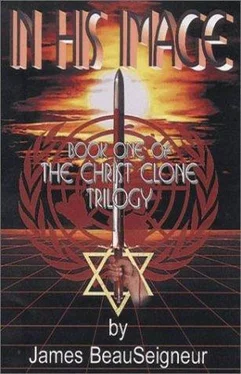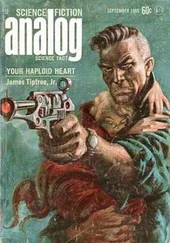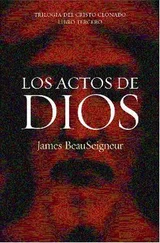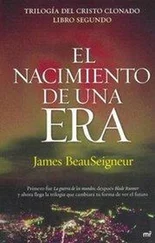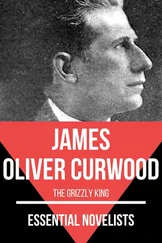"Wait a second," Tom said. "You mean Joel was telling the truth about Tel Aviv being occupied by the Russians?!"
"Not just Tel Aviv," Joel answered. "It's the whole country."
"Man, what a world to wake up to!"
"Yeah, seems that some of the Russians weren't happy with the way things have worked out since the collapse of the Soviet Union," Joel said. "Some of them still want to rule the world. Of course, they told the U.N. they were simply responding to our 'unprovoked' attack on their naval vessels, and that they were really just a peacekeeping force. They said their only intention in occupying Israel was to prevent a chemical/nuclear war. And just to make it seem more legitimate they brought a few troops from Ethiopia, Somalia, and a few other countries so they could say it was an 'international' peacekeeping force. Only now they refuse to leave."
The next morning Tom awoke to the smell of breakfast cooking and the sound of Rhoda Felsberg's voice calling his name.
"Mr. Donafin, are you awake?" It was hard for her to be sure with his eyes bandaged.
"Yes," Tom answered.
"Do you feel like having some breakfast?"
"That sounds great, thank you. But actually the first thing on my mind is finding the bathroom."
"I can bring you a bedpan, or if you feel like you're ready to walk a few steps, I'll guide you there."
Tom was already standing, though his legs felt incredibly unsure beneath him. "I think I'm ready for the real thing," he said.
"Come on then," she said, and put his hand on her arm to lead him through the apartment.
"I'll take it from here," Tom said when he felt tile instead of carpet beneath his bare feet.
"Can you find your way back to your room? I need to go check the breakfast."
"Sure," Tom said. "I'll bet I can even find the kitchen."
Rhoda set the table for two and finished cooking the meal. She watched as Tom slowly made his way to the kitchen but did not offer help or interference. "A little to the left," she said finally, as he was about to walk into a doorjamb.
When Tom found the table and sat down, Rhoda noticed even through the bandages that he had a very strange look on his face. "Is something the matter?" she asked.
"I'm not sure," he said. "When I was in the bathroom I noticed something that didn't seem… uh… quite right. I, uh, well… I… " Tom stammered for another moment. Had he been able see, he would have seen the look of embarrassment on Rhoda's face as she realized what he was talking about. "Never mind," he said finally, and Rhoda was glad to let the subject drop.
"I have some good news," Rhoda said, quickly changing the subject. "I called an ophthalmologist friend and he said he can see you first thing tomorrow."
"That's great!" Tom said.
"Don't get too excited, yet. He only said he could examine you and try to get the rest of the glass out, not that he can get you admitted for surgery."
"Oh. Well, maybe he can at least tell me what my chances are of getting my sight back."
"Yeah, that's what I'm hoping for."
"You, know," Tom added, "there's no reason I have to have the surgery done here, is there? I could go back to the States."
"Well, yes, you could," Rhoda said hesitantly. "Ben Gurion Airport is in pretty bad shape, but I understand that the Russians are still letting a few flights out."
Tom noticed an unexpected hint of disappointment in her voice.
"Speaking of the States," Rhoda continued. "Isn't there anyone you need to call to let them know you're alive?"
Her voice said she was fishing for something she didn't want to ask outright. Tom let it pass and replied to her direct question. "I don't have any family," he said. "My parents, two brothers and a sister all died in a car wreck when I was six. That's how I got this mangled-looking skull. I was the only one to survive."
"Sounds like you've had your share of close calls," Rhoda offered.
"Yeah. I guess so."
"Did they do surgery on you?" she asked out of professional curiosity.
Tom let out an odd chuckle. "Yeah. They waited a while though. They figured I'd die within a few days anyway, and even if I did make it, I'd be a vegetable. I guess I'm lucky it happened so long ago, back in the days before they'd pull your feeding tube to hurry you on your way. Anyway, four days after the accident I woke up and started talking to the nurse. That convinced them I might make it," he said dryly, "so they went in and dug around and pulled out a bunch of broken pieces of skull and a few extra brains I guess I didn't need. They left me with a steel plate that has a habit of setting off metal detectors at airports."
Rhoda smiled awkwardly.
"I do have a friend I should call," Tom said, getting back to her original question. "He probably thinks I'm dead."
"Is that Decker?" Rhoda asked.
Tom gave her a funny look. "How did you know that?"
"You mentioned him several times while you were delirious."
"Oh."
"Anyone else?" she asked.
"Well, I had some friends named Rosen here in Israel but they died in the Disaster." Tom was going down a very short list of the people he counted as his friends. Until the Disaster, Joshua and Liana Rosen had visited him every day at the hospital in Tel Aviv. Their son, Scott, had survived the Disaster, but Tom hardly counted him as a close friend. "I really ought to call NewsWorld" Tom said. "That's where I work. But to tell the truth, I'd rather wait until after we've been to the ophthalmologist before I call them. I'm a photo-journalist, or at least I was. I'm not sure there's much call for blind photographers."
"No. I guess not."
"How about you?"
"Pardon?"
"Your family."
"Oh, well, of course, there's my brother, Joel, who you met yesterday. His wife and son died in the Disaster. I really liked her, and he was a real sweet kid. The three of us used to go to worship services together. That's how I know Rabbi Cohen. Joel's a computer systems analyst for the Israeli government doing something with strategic defense, but he's not allowed to say what. That was before the Russians relieved him of his responsibilities, of course. I feel bad for him; he's lost nearly everything in the past couple of months. My parents and younger sister live in the States."
Tom nodded and after an appropriate pause asked Rhoda if she knew what time it was in Washington.
"About midnight," she answered after doing a quick mental calculation.
"Good, Decker ought to be home. Can I use your phone?"
"Sure," she said. "I should warn you that getting an overseas call out is not an easy task. There's really no logic to it. After the occupation began, I called repeatedly to let my folks know I was all right. I must have dialed a hundred times before I got a call through. When I did, it went straight through and sounded as if they were right next door. Of course, it's not just from the occupation. There was a lot of damage from the war." Rhoda dialed the number Tom gave her, and handed him the phone. "The middle button at the very bottom redials," she said. "If you don't get through, feel free to try as many times as you like."
"It's ringing," Tom said, surprised.
"That won't happen again in a million years," Rhoda said, surprised by Tom's stroke of luck. Tom waited as the phone continued to ring. "What's the matter?" Rhoda asked after a minute.
"No one's answering."
"Well, don't give up too quickly. You may not get another call through for a long time."
New York
Decker was already in his chair at the conference table when British Ambassador Jon Hansen and the other members of his senior staff arrived for a special meeting. The excitement of Decker's new job was still fresh.
"Decker," Hansen said before he even sat down, "I need one of your best speeches for this."
Читать дальше
